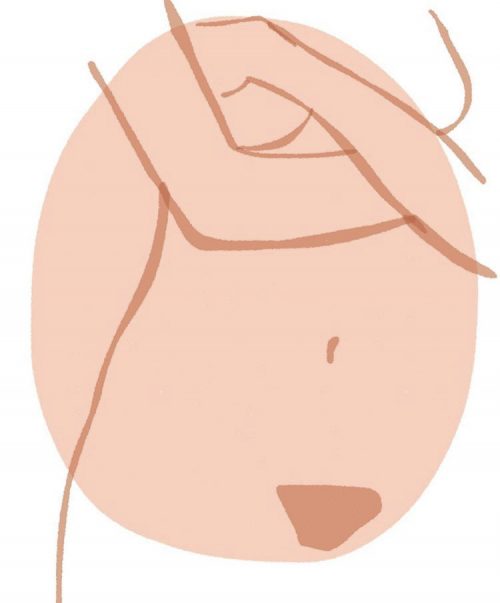3 Helpful Supplements for Endometriosis
Posted by Paige Brown

After hours of reading studies on endometriosis, researching supplements for the treatment of endometriosis, and reading others blogs on this subject, I came across an interesting article in Vogue.
Did you know Lena Dunham had a hysterectomy at the age of 31 due to Endometriosis pain? I know that’s a scary thought, and obviously not an option for everyone. (Read her story here)
It’s definitely a reality check when someone so young would take the option of removing an organ, giving up her potential to carry a baby to term and give birth because she never wanted to go another day feeling the pain that she did. She would say “okay” to early menopause and hormone therapy willingly, just to ease her pain.
While I can’t completely understand the severity of the pain Lena, and some of my patients feel daily, weekly, or monthly, or the extreme cases of infertility and endometriomas that can come along with this diagnosis, I do empathize with the fact that sometimes we are dealt these crappy hands in life and we just have to do what’s best for us.
I also can’t pretend to know how alone some of my patients feel in dealing with this diagnosis. To enjoy life is something that everyone deserves, and for some, removal of the uterus has been the eventual answer, but it doesn’t come without risk and ideally should be a last resort. So I want to share some options that can offer hope, particularly if you want to try to preserve your fertility.
So let’s dive into three ‘easy to find at your local health food store’ supplements that research shows helps to reduce pain, ovarian endometriomas and endometrial-like tissue in the presence of Endometriosis.
Pycnogenol
Pycnogenol or Pine Bark extract has been known to have many analgesic properties. This extract taken in capsule form has been shown to reduce pain in many conditions from osteoarthritis to dysmenorrhea or painful periods, which is a common symptom of Endometriosis.
This natural supplement has been proven in studies to have lasting and compounding effects. In one study pycnogenol was found to be more effective in treating painful periods in Endometriosis than Gn-RHa or gonadotropin-releasing hormone agonist, a common hormone therapy treatment for endometriosis. Not only were the effects of pycnogenol long lasting with results lasting even after discontinuing use but the longer the supplement was taken, the better results patients received.
Another study showed that the use of pycnogenol reduced pain scores of dysmenorrhea significantly as well as the need for analgesics. Even after the women stopped using the pycnogenol, fewer analgesics were needed and the analgesic effect of pycnogenol continued.
Melatonin
This well known supplement for sleep has also been found to help reduce chronic pelvic pain in those diagnosed with Endometriosis. You may think of Melatonin as a sleep aid, but that’s not all it can do. Melatonin has been found to help reduce inflammation, reduce pain, and is also an antioxidant.
In a 2013 study of 40 women, 10mg of melatonin taken daily was found to decrease daily pain, pain during sex, pain during urination and painful periods. Daily use of melatonin was found to improve sleep quality, and reduced the risk of using pain medication by 80%.
NAC
NAC or N-Acetyl cysteine is a form of the amino acid cysteine naturally found in chicken, eggs, and garlic. NAC is responsible for the increase of natural glutathione which is a detoxifier/ antioxidant responsible for the destruction of free radicals in the body, as well as the ability to reduce and inhibit the growth of epithelial cells, or endometriosis like tissue.
One recent study of 47 women taking 600 mg of NAC three times a day for three consecutive months, found the women did not experience endometrioma (cyst) growth. They had a greater number of cysts shrink, eight women had cysts disappear completely, half of the women cancelled their laparoscopic surgery, and eight women became pregnant during the study or within 12 months.
Please note that it’s always important to consult with a registered health practitioner before taking any supplement to make sure that it is the appropriate supplement and dose for your case.
While there is currently no cure for Endometriosis, there are options like acupuncture and supplements that can help those suffering with this silent disease. More research needs to be done to continue to increase awareness.
If you or someone you know suffers from Endometriosis or endometriosis-like symptoms, feel free to contact us for a free 15-minute q & a to explore the options that we offer, we are happy to help!
You don’t have to suffer alone.
Image: Tio Cuchillos
Resources
PMID: 18567279
PMID: 28367412
PMID: 17879831
PMID: 23602498
PMID: 23737821
doi.org/10.1155/2013/240702
